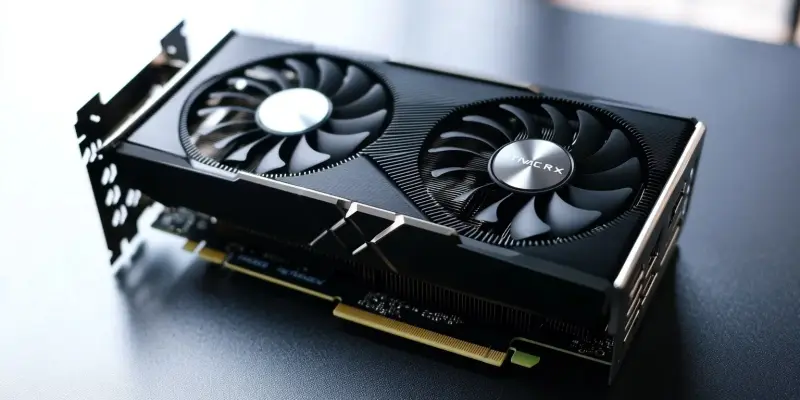With Nvidia’s reputation for consistently pushing the boundaries of graphics processing, anticipation is soaring for the imminent unveiling of their latest innovation, the RTX 5080, at CES. This flagship GPU, part of the cutting-edge RTX 5000 Blackwell series, is generating considerable excitement among tech enthusiasts and industry insiders alike. An important highlight of the RTX 5080 is the introduction of DLSS 4 technology, representing a significant leap forward in the realm of upscaling algorithms. An apparent listing by a European retailer for an Asus variant of the RTX 5080, priced at approximately $1,749 including VAT, further substantiates the buzz surrounding this launch. The listing has added credibility to rumors that the new GPU will employ GDDR7 memory, promising a noticeable enhancement in performance and efficiency over previous generations.
Introduction of DLSS 4 Technology
Deep Learning Super Sampling, or DLSS, has been a game-changer in the graphics industry, enabling remarkable improvements in frame rates and visual fidelity without the need for substantial hardware upgrades. DLSS 4 is expected to build upon the success of its predecessor, DLSS 3, which debuted alongside the RTX 4080 and RTX 4090 in September 2022. The confirmed existence of DLSS 4 by reputable leaker kopite7kimi, coupled with Nvidia board partner Inno3D hinting at showcasing advanced DLSS technology and neural rendering capabilities at CES, has set the stage for what could be a revolutionary advancement in graphics processing. The potential integration of neural rendering capabilities within DLSS 4 suggests a broader and more sophisticated application of machine learning techniques to render scenes in real-time, elevating the overall gaming experience to new heights.
AMD’s Anticipated Reveal of FSR 4
Alongside Nvidia’s recent announcements, AMD is expected to unveil FSR 4 at CES, taking another step toward the RX 9000 series. Although AMD’s new GPUs may not directly rival Nvidia’s top-tier models, FSR 4 showcases AMD’s dedication to advancing their upscaling technology. FidelityFX Super Resolution (FSR) has played a crucial role in AMD’s strategy to improve game performance and visual quality across different hardware. FSR 4 will likely offer advancements that enhance compatibility and performance, making it a strong alternative to Nvidia’s DLSS for many gamers.
This simultaneous progress by both tech giants highlights the paramount importance of upscaling technologies in the future of gaming and graphics. The upcoming reveal of Nvidia’s RTX 5080 and DLSS 4, paired with AMD’s FSR 4, marks an exhilarating period for the graphics industry. With each company pushing the boundaries in upscaling and rendering, gamers and tech enthusiasts alike will soon benefit from superior performance and visuals. The introduction of GDDR7 memory in the RTX 5080 suggests significant speed and efficiency gains, raising anticipation for CES to new heights. As these advancements continue, the competitive scene in graphics technology is poised for significant evolution, driving innovation and establishing new standards for the industry.

